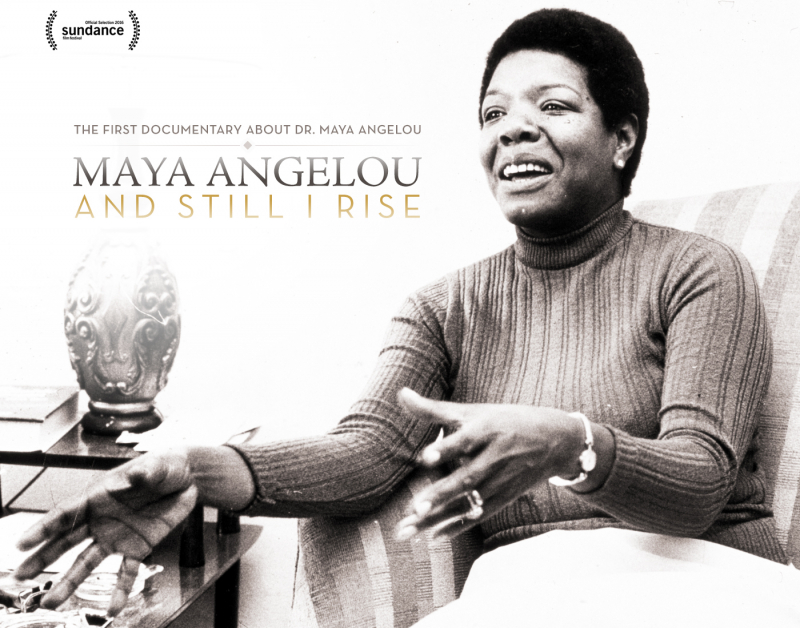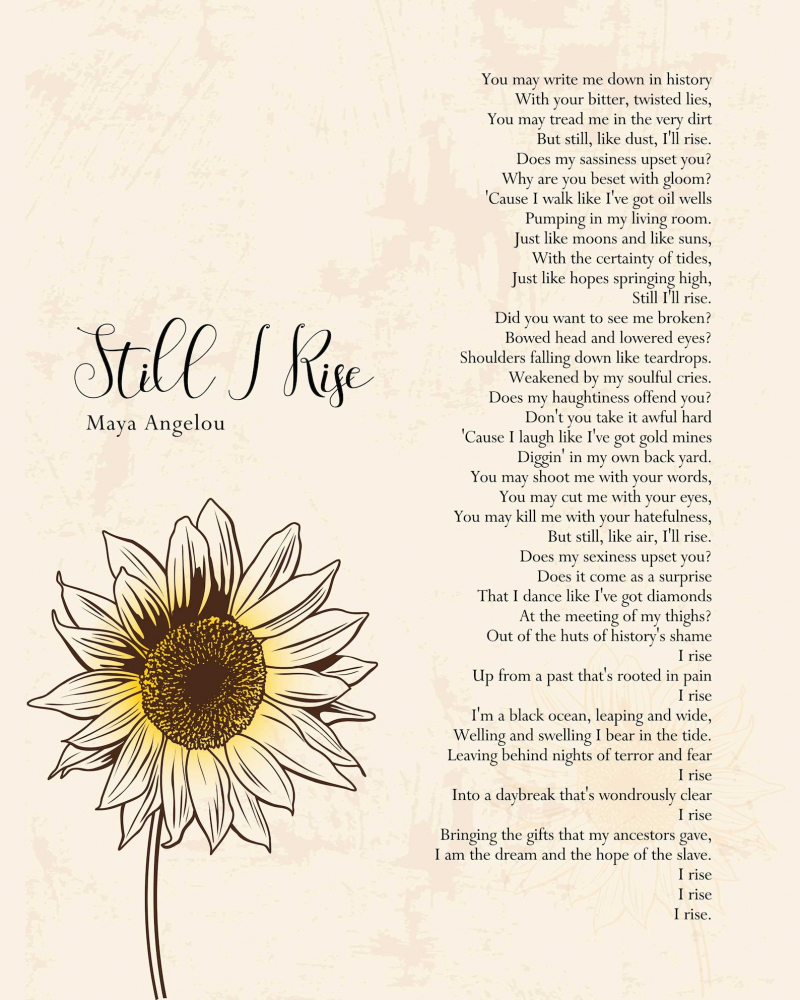Still i rise
Still I Rise replies to decades of abuse and injustice that black people have endured by addressing the white people who have been responsible for it. In the first stanza of the poem, the narrator discusses numerous forms of tyranny, including writing. Still I Rise celebrates the unbreakable spirit of Black people and expresses confidence in their ability to prevail in the face of bigotry and hardship. It is both Maya Angelou's most well-known and favorite poem. She frequently used it in her public readings and cited it in interviews. Nelson Mandela performed this poem at his inauguration as president in 1994.
Perhaps the most well-known poetry by an African American is Still I Rise, which has been referred to as a "proud, even defiant statement on behalf of all Black people”. Black women's response to society's perceptions is expressed in this poem. Black women are "de mule uh de globe," or "the mule of the world," to borrow a phrase from another black author, Zora Neale Hurston, who wrote in ``Their Eyes Were Watching God. Despite the extreme brutality and disrespect they endure, black women like Hurston, Angelou, and others continue to fight against injustice. It is a resolute declaration of tenacity and assurance.
The poem is divided into quatrains, which are four-line stanzas, however the regularity of the form is abandoned after the seventh line. There are six and nine lines in the eighth and ninth stanzas, respectively, signifying the poet's liberation from restrictions. I rise is repeated often as a statement of liberation. The ABCB rhyme scheme is dropped, resulting in the ABABCC rhyme scheme in verse 8 and the ABABCCBBB rhyme scheme in stanza 9. In the final two stanzas, she also dispenses with the conventional metrical beat. The poet begins in the first person singular ‘I’, addressing the reader or a listener as ‘you’. The tone is assertive and challenging, the colloquial language interspersed with lyrical snatches.
Poet: Maya Angelou
Published: 1978












